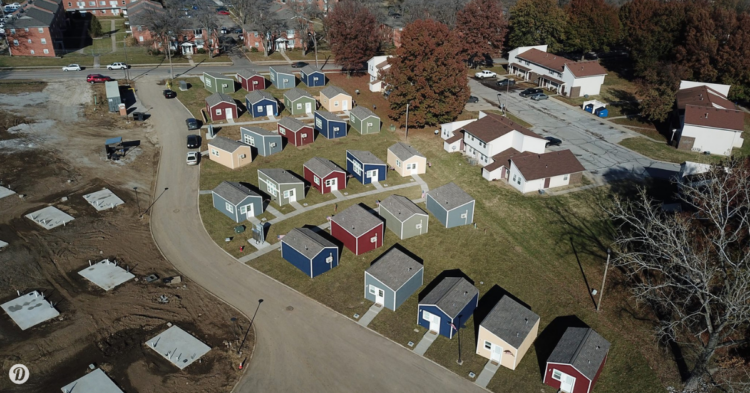You know, it’s easy to want to help veterans. They’ve put their lives on the line for the rest of us, so how can you not want to see them succeed in their civilian lives? But often veterans face challenges that, unless you’ve been there, you can’t really relate to.
So it’s always touching to see how veterans help other veterans. Chris Stout is one of those vets helping vets, and he deserves some applause.
Wounded in Afghanistan, former U.S. Army Corporal Chris Stout returned to the U.S. in 2005 in need of some help.

He struggled with his injury as well as PTSD. But he got a job helping his fellow veterans connect to services, and helping them helped him.
It also exposed him to a system with some serious gaps and flaws. When needed, he would pay out of his own pocket to let vets spend the night in a hotel room.
In 2015, he took matters into his own hands. He got a few buddies together and started up the Veterans Community Project.

The idea was simple: Help vets in need. “We are the place that says ‘yes’ first and figures everything else out later,” he told CNN . “We serve anybody who’s ever raised their hand to defend our Constitution.”
To help get vets off the street, Chris and his buddies started building homes.
The one thing homeless vets didn’t want was another communal shelter.

They’re less safe than a traditional home, and you don’t have privacy.
So, Chris settled on building groups of tiny houses. “It provides everything these guys need to live with dignity, safely, and then fix what got them there in the first place,” he says.
The first one, built back in 2015, went up right in Chris’s own front yard in Kansas City before it was moved.

He and his friends got their instructions from a YouTube video. It was tough.
“I gave up my job, mortgaged my house, spent my life savings — worried my wife to death! But I get to work with a group of people that I can relate to,” he says. “They’re my friends. When I see a win for them, that’s huge. It’s a celebration for me. That’s what gets me going every day. We all went through basic. We all served. This is just my way to serve them.”
The veterans who move into the tiny home community can stay as long as they like “as long as they’re working towards their goals,” Chris says.

“We see these tiny homes as an educational tool to teach them how to maintain a home, cook for themselves, and live next to neighbors. So far, eight of the original 13 residents have moved into permanent housing.”
In addition to the houses — 49 altogether — the little village also has a community center with medical, dental, and veterinarian care as well as a barbershop, and a fellowship hall for large gatherings.
No surprise, other cities have looked to the Veterans Community Project’s success in Kansas City as a model.

Chris says they’ve been contacted by “650-plus communities,” and there are plans to expand into Nashville, Denver, and St. Louis. “Our goal is to be in every major city moving forward.”
Of course, housing isn’t the only thing the Veterans Community Project provides for vets in need.

They’ll help however they can. “When any veteran walks in the door they can get their bus pass, housing placement, job placement, legal services, food pantry, clothing closet, and emergency financial assistance,” Chris says. “We like to have them say, ‘What do you provide?’ That way we can ask them ‘What do you need?’ And then we can start being the connectors. So far we have helped more than 8,000 veterans.”
All in all, it’s hard to state the difference the Veterans Community Project has made.

But the vets couldn’t appreciate it more. “I’ve slept in abandoned buildings before,” Marvin Gregory told KSHB before moving into one of the tiny homes. “To come from something like that and be standing here like this, I’m truly blessed and I’m not going back. I’m not going back. I haven’t gotten here yet but they have gave me so much hope and it’s amazing. It’s amazing.”
h/t CNN

















































